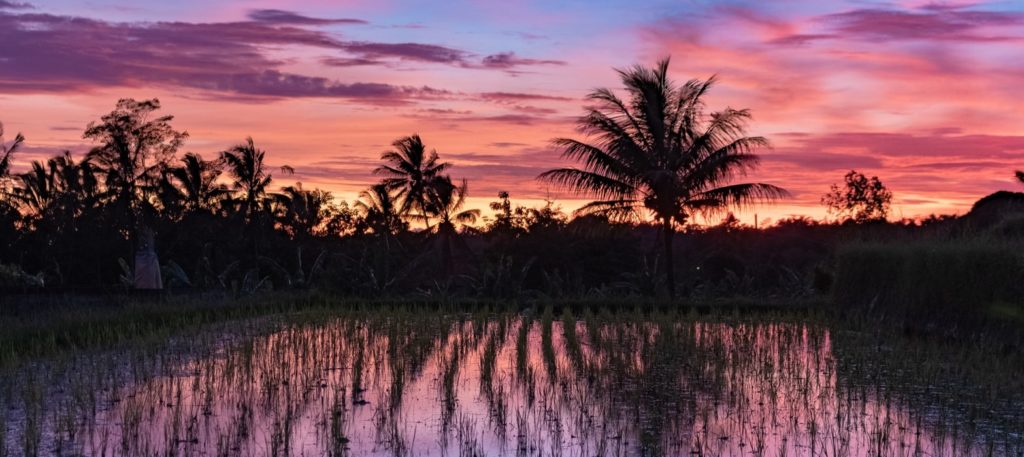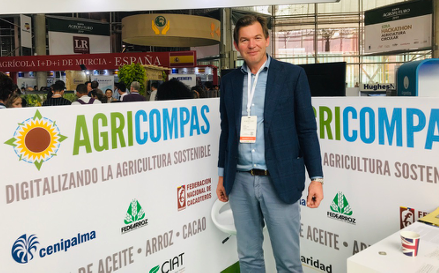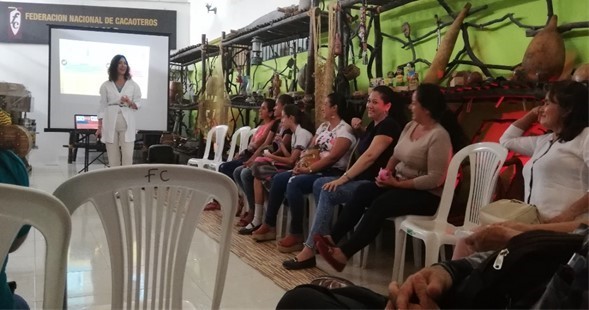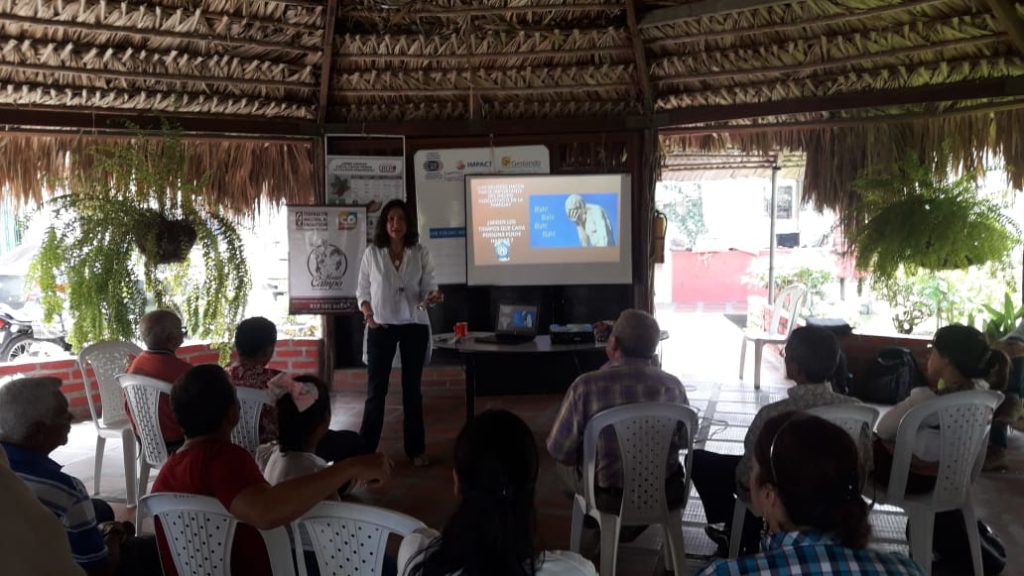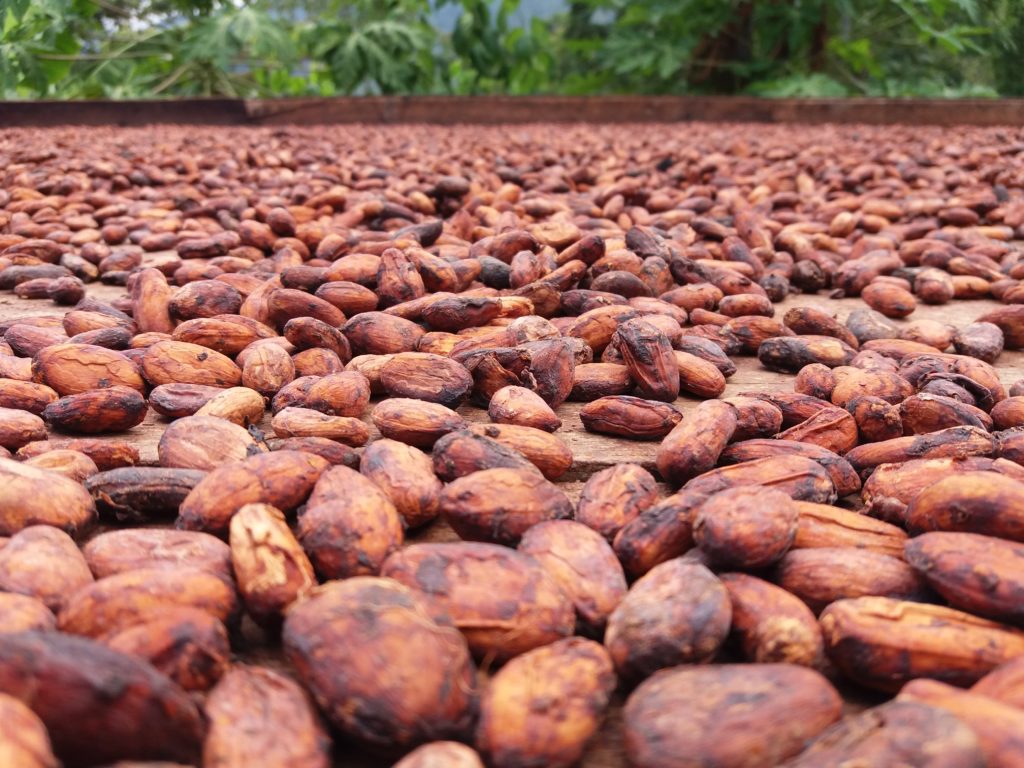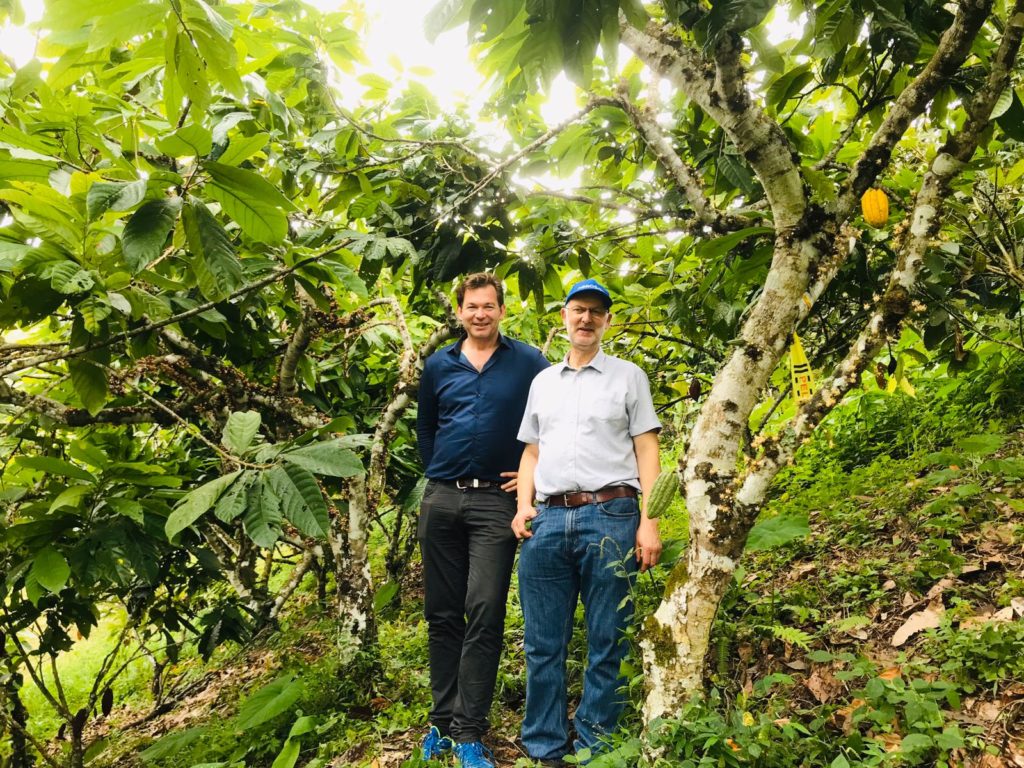Libardo Ochoa García, Colombia Project Officer, Agricompas

The Ecological Production Management Information System, EcoProMIS, is a project implemented in Colombia and co-financed by the United Kingdom Space Agency (UKSA).
Agricompas has been developing the EcoProMIS idea over the last four years, with the support and collaboration of Colombian institutions Cenipalma, Fedearroz, CIAT and Solidaridad, and the companies IWCO and Pixalytics in the UK.
Collecting Farm Data
At the end of the EcoProMIS project, in 2022, a “platform” will be created that collects, with the active support of growers, agronomic field data and correlates it with meteorological and environmental data, as well as with satellite and drone earth observation data.
EcoProMIS processes this rice and oil palm production data in near real-time crop production knowledge with the help of crop models and algorithms (mathematical information processes).
Knowledge to Support Farmers
The above agronomic knowledge is combined with environmental, market and socio-economic knowledge, to generate practical information for decision-making in rice and oil palm crops.
Colombian rice and oil palm farmers will receive crop production knowledge to support their decision making at no cost, as long as they share and upload their crop data on the EcoProMIS platform. For each farmer and each plot, detailed supportive information will be generated.
A Strategic Alliance
The knowledge services that EcoProMIS will provide to growers are developed in close collaboration with our partners; the rice and oil palm growers and their federations. EcoProMIS activities include workshops in Casanare, Meta, Tolima and Magdalena wherein growers are interviewed and trained in data collection, concepts and ideas are shared, and partners participate in the development and testing of new knowledge services.
Knowledge Services
The EcoProMIS team are currently developing the first ‘knowledge services’ for rice and oil palm. These services predict yield and calculate water demand in both crops. Yield prediction is important for the grower to understand if the crop is performing well and if this is not the case to investigate limiting growth factors.
Further it helps the farmer with planning the harvest and processing logistics. Regarding crop water requirement; the farmers will be able to establish in time how much additional water is required in irrigated and rainfed systems per crop cycle for rice and per year for oil palm. Water is fast becoming a scarce commodity.
Support with Drought
A practical example of applying EcoProMIS knowledge in daily life by Colombian farmers can be illustrated with recent events during the first half of 2020. Rainfall was scarce and the average annual rainfall is expected to be below the historical average. The questions arise, how will water shortage affect the rice and oil palm crops? And how much water is available for agriculture or industry?
With the EcoProMIS platform, farmers will have access to near real-time knowledge about crop water needs vs. the expected rainfall and thus be able to make better management decisions. This will help farmers to decide whether or not to invest in or use irrigation. In addition the grower could use the information of water shortage to justify a yield loss claim in case of insurance against drought.
A Joint Sustainable Future
After the project is finished by mid 2022 Agricompas will commercialise the platform as the new independent knowledge creator and broker in the crop value chain. We will provide “Knowledge for Free” to our grower and federation partners and “Decisions for a Fee” to major value chain players such as input and equipment providers, insurers and banks, and processors and traders. Our ultimate goal is to empower and support growers and increase their productivity and profits while reducing the environmental impact and improve the socio-economic conditions of all stakeholders.



